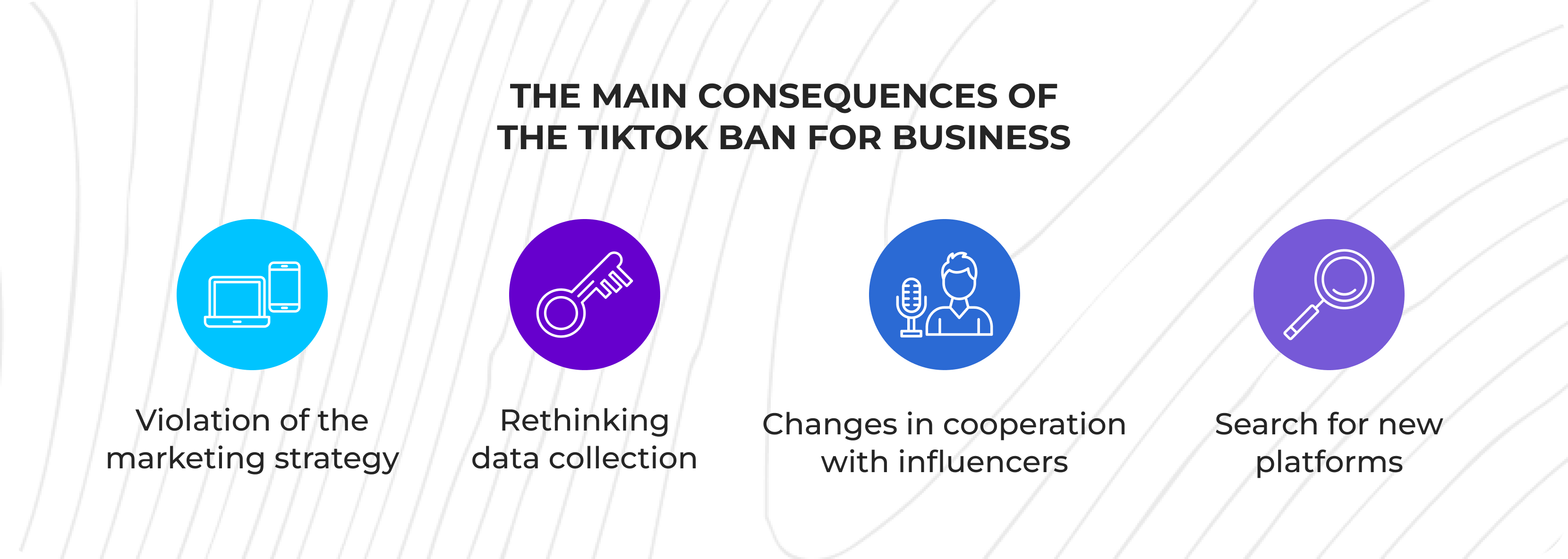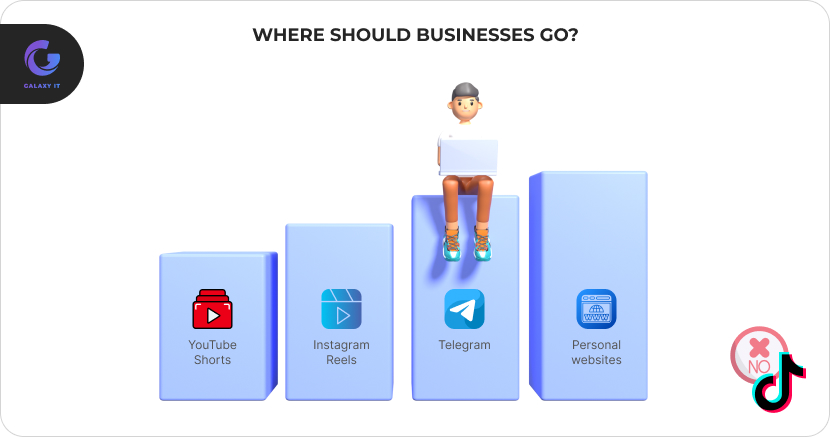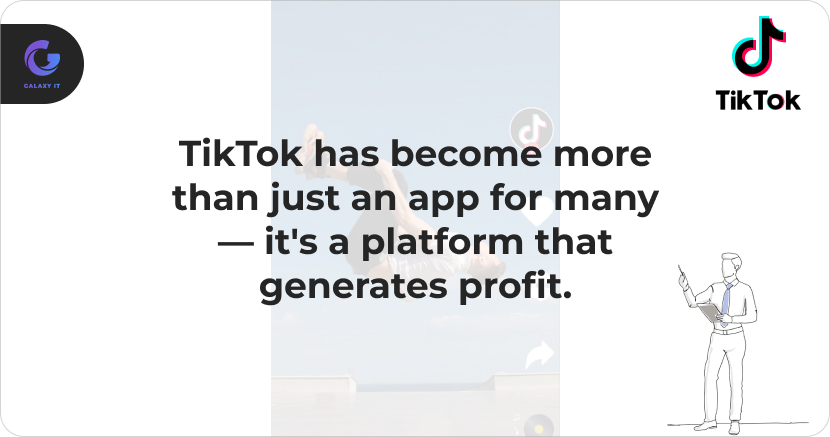How will the TikTok ban affect business?
- 28.04.2024
- 23 views
- 7 min
The potential ban on TikTok raises questions
In recent days, the U.S. government has set in motion a proposal to ban the social media phenomenon, TikTok. This move has left millions around the world wondering about the future of their favorite platform. The uncertainty looms large as discussions unfold regarding the potential ramifications of such a ban.
For many, TikTok is more than just a social network; it is a source of entertainment, inspiration, and even business. The potential ban on TikTok raises questions not only about the fate of the app itself, but also about the broader implications for digital culture and commerce. On the other hand, there are many supporters of this bill, as they believe that it has a negative impact on the human brain. In this article, we will look at how this will affect business, what alternatives and solutions exist.
What are the main changes for businesses after the tiktotok restriction?
As the specter of TikTok restrictions looms, businesses are at a crossroads, trying to cope with the potential consequences and chart a course forward in uncharted territory. Proposed restrictions on TikTok, a platform that has become synonymous with creativity, engagement, and brand awareness, have sent shockwaves through the business community. As companies prepare for a possible post-TikTok scenario, they should carefully analyze the major changes that could affect their operations and adapt their strategies accordingly. In this article, we will look at the key changes that businesses are likely to face due to TikTok's restrictions, as well as strategies to mitigate their impact and capitalize on new opportunities in the evolving digital landscape. Among the changes we can expect:

Disrupted Marketing Strategies:
TikTok has become a cornerstone of many businesses' marketing strategies, offering a unique platform to engage with audiences through creative and captivating content. However, with the potential ban looming, businesses face the daunting task of reevaluating their approach to digital marketing. For those heavily reliant on TikTok, this could mean a significant disruption in their ability to reach and connect with their target demographic. The sudden absence of TikTok could force businesses to pivot hastily, reallocating resources and experimenting with alternative platforms in search of a new digital foothold.
Influencer Marketing Fallout:
The rise of TikTok influencers has reshaped the landscape of influencer marketing, providing brands with a direct line to millions of engaged followers. Should the ban come to fruition, it would not only upend the careers of countless TikTok influencers but also leave brands scrambling to find alternative means of influencer outreach. This could lead to a temporary vacuum in influencer marketing, as brands navigate the transition and seek out new partnerships with influencers on different platforms.
Data Privacy Reassessments:
Privacy concerns have long lingered in the background of TikTok's meteoric rise to fame. With the threat of a ban looming, businesses are prompted to reevaluate their data privacy practices and the platforms they entrust with customer information. The potential loss of TikTok as a data source may prompt businesses to seek out more secure alternatives for gathering consumer insights and tracking market trends. This shift could herald a new era of scrutiny and caution regarding data privacy in the realm of social media marketing.
The Quest for Alternative Platforms:
As the fate of TikTok hangs in the balance, businesses are already exploring alternative platforms to fill the potential void left by its absence. From established social media giants to emerging niche platforms, companies are casting a wide net in search of new channels to connect with their audience. This quest for alternative platforms may lead to increased competition and innovation in the social media landscape, as businesses vie for attention and market share in a post-TikTok world.
Alternative platforms for moving
As businesses brace for the potential impact of TikTok restrictions, the search for alternative platforms becomes paramount. Diversifying digital strategies to include alternative social media channels and communication platforms is essential for maintaining brand visibility and audience engagement. Let's explore some alternative platforms that businesses can leverage to fill the void left by TikTok's absence and continue connecting with their target audience in meaningful ways.
YouTube and YouTube Shorts:
YouTube stands as a versatile platform for businesses, offering a vast audience and diverse content opportunities. With its traditional long-form video content and the newly introduced Shorts feature, akin to TikTok's format, businesses can maintain engagement and reach with their target audience.
Instagram:
Instagram provides businesses with a multifaceted platform for showcasing products, engaging with followers, and running targeted advertising campaigns. Features like Reels and Stories enable businesses to create dynamic and interactive content, similar to TikTok's format, within the Instagram ecosystem.
Telegram:
For businesses seeking direct and intimate communication channels, Telegram offers secure messaging capabilities and the opportunity to create engaging content through channels and groups. While not as mainstream as other platforms, Telegram's emphasis on privacy and community engagement can resonate with certain audiences.
Personal Websites:
Establishing a presence through personal websites provides businesses with a centralized hub for content, products, and customer interaction. By building a website, businesses can maintain control over their brand image and messaging while cultivating a loyal customer base through personalized experiences and direct communication channels.

Final thoughts
In the process of transitioning from TikTok, you need to be prepared in advance and start preparing for it right now to adapt to the new realities.









